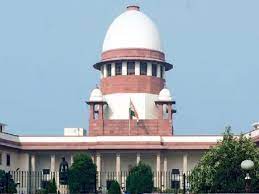

By Sunil Garodia
First publised on 2023-04-19 07:22:15
The very fact that the Centre and Gujarat are reluctant to place the original case files of the 11 convicts in the Bilkis Bano case whose sentences were controversially remitted before the Supreme Court proves that the files contain notes that might show that undue favour was granted to the said convicts. The Supreme Court is right in saying that it needs to examine the files to find out what reasons were put forward to remit the sentences and if due process was followed in the case. It said that in remission of sentences, the gravity of the offence needs to be factored in and "standard Section 302 (murder) cases" cannot be compared to a case where "a pregnant woman was gang-raped and several people were killed". It further said that "like you cannot compare apples with oranges, similarly massacre cannot be compared with a single murder".
Both the Centre and the Gujarat government have told the Supreme Court that they will seek a review of its March 27 order asking them to place the original files before the court. But the court was not convinced. It said it needed to see the reasons for granting remission in order to confirm whether the government applied its mind, which, according to the court was the real question in the matter. It told the Centre and the Gujarat government that if the reasons were not provided, the court will draw its own conclusions.
Both the Centre and the states are empowered to grant remission of sentence to convicts. But this has to be done as per law and existing procedures. It is the duty of the Supreme Court to find out if the governments did follow the law and the procedures. For this reason, it needs to see the files in which the reasons behind the grant of remission were recorded. If the Centre and the Gujarat government refuse to comply with the Supreme Court order and refuse to place the files before the court, the court might consider the remission illegal and might cancel it. It might use the special powers under Article 142 to provide complete justice in a case to do so.











